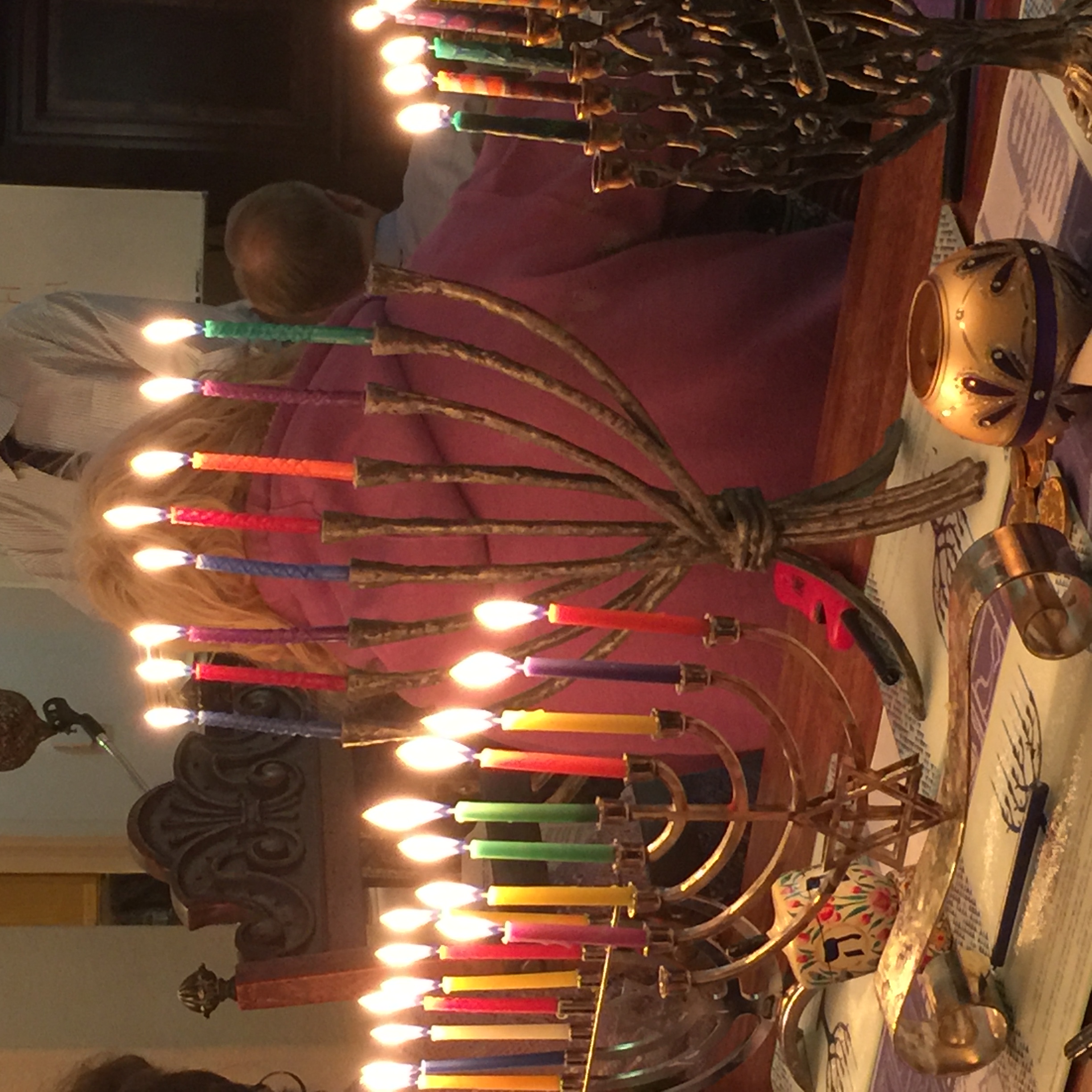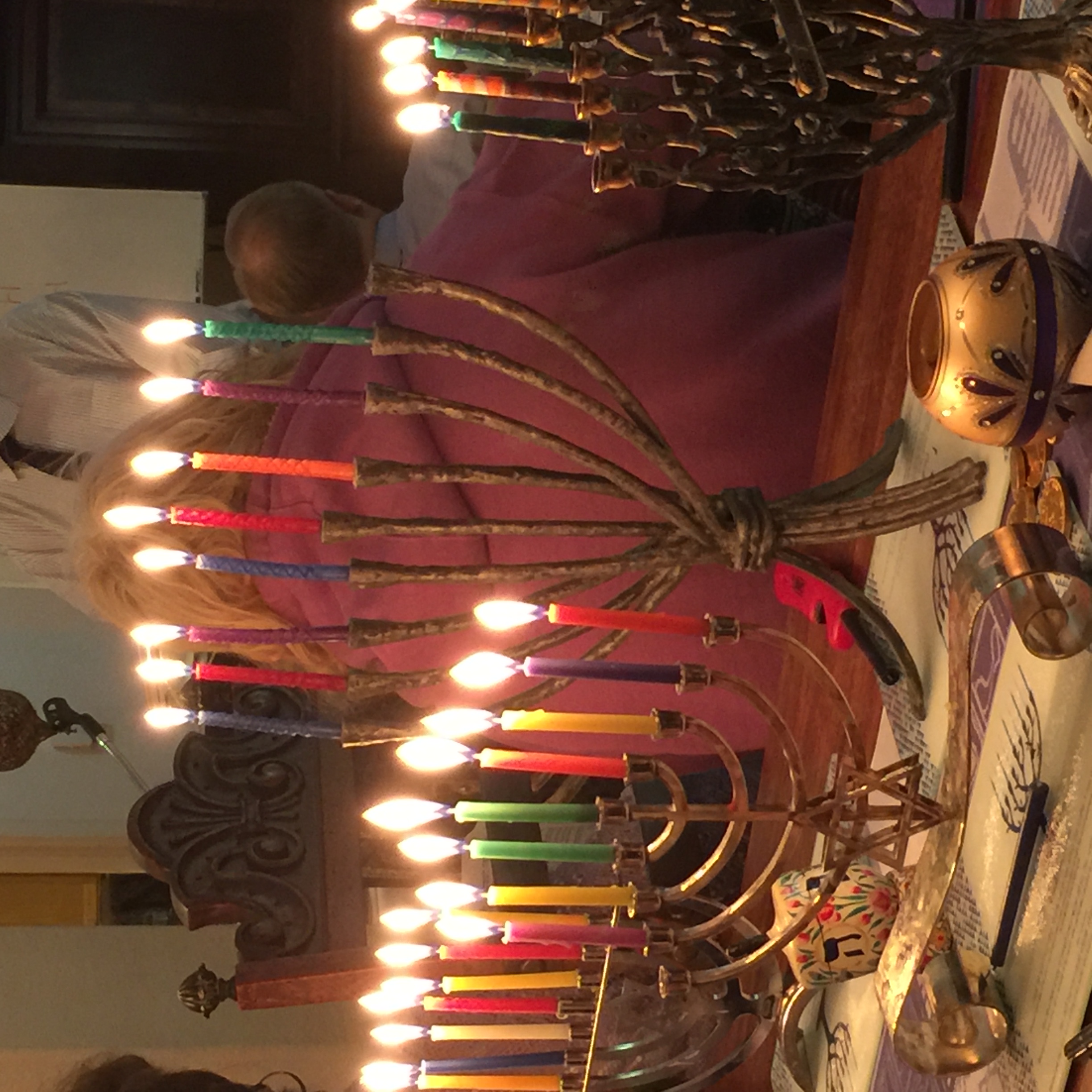When was Yeshua born … Christmas?? or Sukkot??
by Christine Darg
Celebrating Messiah’s birth at the accurate season is something the Lord has been challenging our ministry to stage for many  years—also because of the sheer commercialism and paganism of Christmas. For example, Father Christmas, aka Santa Claus, is generally believed to be a hybrid character of elements from St. Nicholas, who had a reputation for secret gift giving, and pagan mythology. The date 25th December to celebrate the Nativity of Jesus never has been universally accepted. The Eastern Church celebrates the Nativity on 6th January. According to the Oxford Dictionary of the Christian Church, by the end of the 5th Century, most of the Western Church had adopted 25th December but 25th December has never been considered accurate; rather, it is the date when pagans celebrated the rebirth of the sun.
years—also because of the sheer commercialism and paganism of Christmas. For example, Father Christmas, aka Santa Claus, is generally believed to be a hybrid character of elements from St. Nicholas, who had a reputation for secret gift giving, and pagan mythology. The date 25th December to celebrate the Nativity of Jesus never has been universally accepted. The Eastern Church celebrates the Nativity on 6th January. According to the Oxford Dictionary of the Christian Church, by the end of the 5th Century, most of the Western Church had adopted 25th December but 25th December has never been considered accurate; rather, it is the date when pagans celebrated the rebirth of the sun.
It is far more likely that Jesus was born during the Feast of Tabernacles. What Biblical grounds do we have for making this statement? Luke 1:5 tells us of the advent of John the Baptist. His father Zechariah, was on duty in the Temple when Zechariah was visited by Gabriel, the angel of the Lord. If we assume that the priests did their two weeks on duty “back to back,” theologians tell us precisely what time of the year this happened. Luke states that Zechariah’s division of the priesthood was that of Abijah.
“back to back,” theologians tell us precisely what time of the year this happened. Luke states that Zechariah’s division of the priesthood was that of Abijah.
Why does Luke want us to know this seemingly irrelevant detail? No detail is in Scripture by accident. If we turn to 1 Chronicles 24 verse 10, we read the sequence when each of the divisions took their turns on temple duty, and discover that Abijah’s division had the eighth lot—meaning the second part of the fourth month of the Jewish religious year on the Hebraic calendar. There are two New Years for the Jews, one civil and one religious; the religious year begins with the month Nisan, (March-April), and it was this calendar—the Religious Year—that was used in apportioning the lots for Temple service.
If the first lot fell in mid-March, Abijah’s eighth lot fell halfway through the fourth month—mid-July to mid-August, when Zechariah was on duty. Luke obviously wants us to know when Zechariah was on duty. Zechariah finished his course of duty. He then returned to his home in Ein Kerem and after his four days of abstinence as dictated by the Law, Elizabeth conceived their son. Theologians calculate that it is now day 116 of the religious year—and Elizabeth conceives John immediately since this is a divinely inspired conception.
How is it that Luke knows these details about Elizabeth’s pregnancy and Mary’s conception of our Lord? Could it be that, as a physician, he interviewed Mary before writing his Gospel account? During the Annunciation of the Angel Gabriel in Nazareth to the Virgin Mary, to assure Mary that she is not delusional, then Gabriel drops this extraordinary bit of reassuring information, “Even Elizabeth your relative, who was said to be barren, is in her sixth month.” Therefore it was in the sixth month of Elizabeth’s pregnancy that the Virgin Mary was visited by the angel Gabriel who announced that she would be overshadowed by the Holy Ghost to conceive and bear a son, and she should call Him Jesus (Yeshua). Another but greater baby miracle transpired—a virgin conceived to bear a son as prophesied in Isaiah 7:14.
Since Mary conceived Jesus by the Holy Spirit when Elizabeth was in the sixth month of her pregnancy—according to the theologians’ calculations, the Incarnation would have been in December! So Jesus was not born on 25th December, but rather he was conceived around or near the time of December during Hannukah—the Feast of Lights. December is when the Light of the World entered into this world in Nazareth. Therefore it is likely that at Hanukkah, the Feast of Dedication, the Son of God, who existed before all things, dedicated Himself to be our Atoning Sacrifice, and took flesh, to be incarcerated for nine months in a virgin’s womb. Conception is when life begins!
Nine months later, our Lord was actually born in September-October, the time of the fall festival of the Feast of Tabernacles. Perhaps John 1:14 has this in mind, “And the word became flesh and ‘tabernacled’ among us…” And that is why the shepherds were watching over their flocks by night in the still relatively balmy evenings of the Promised Land!




I absolutely love you and your website!